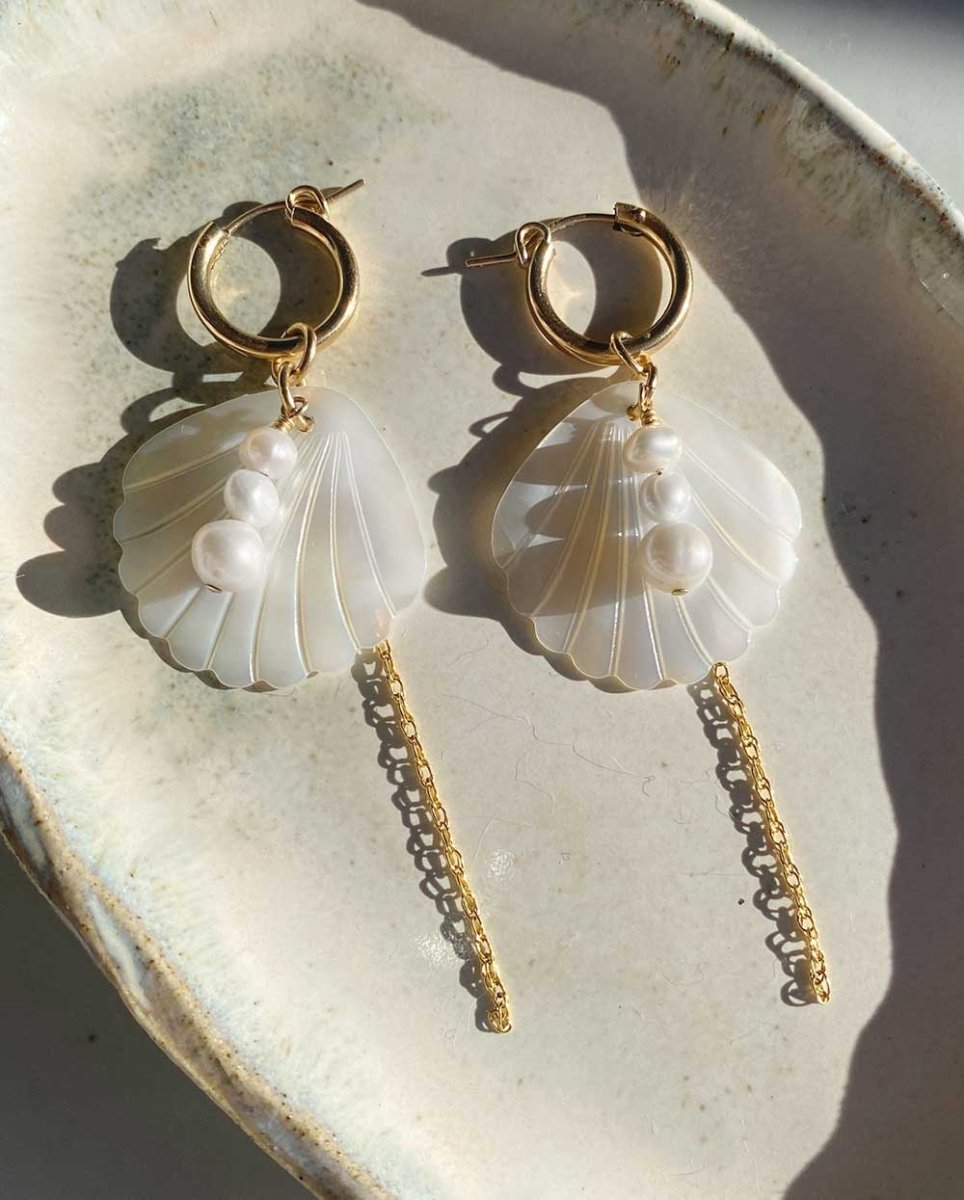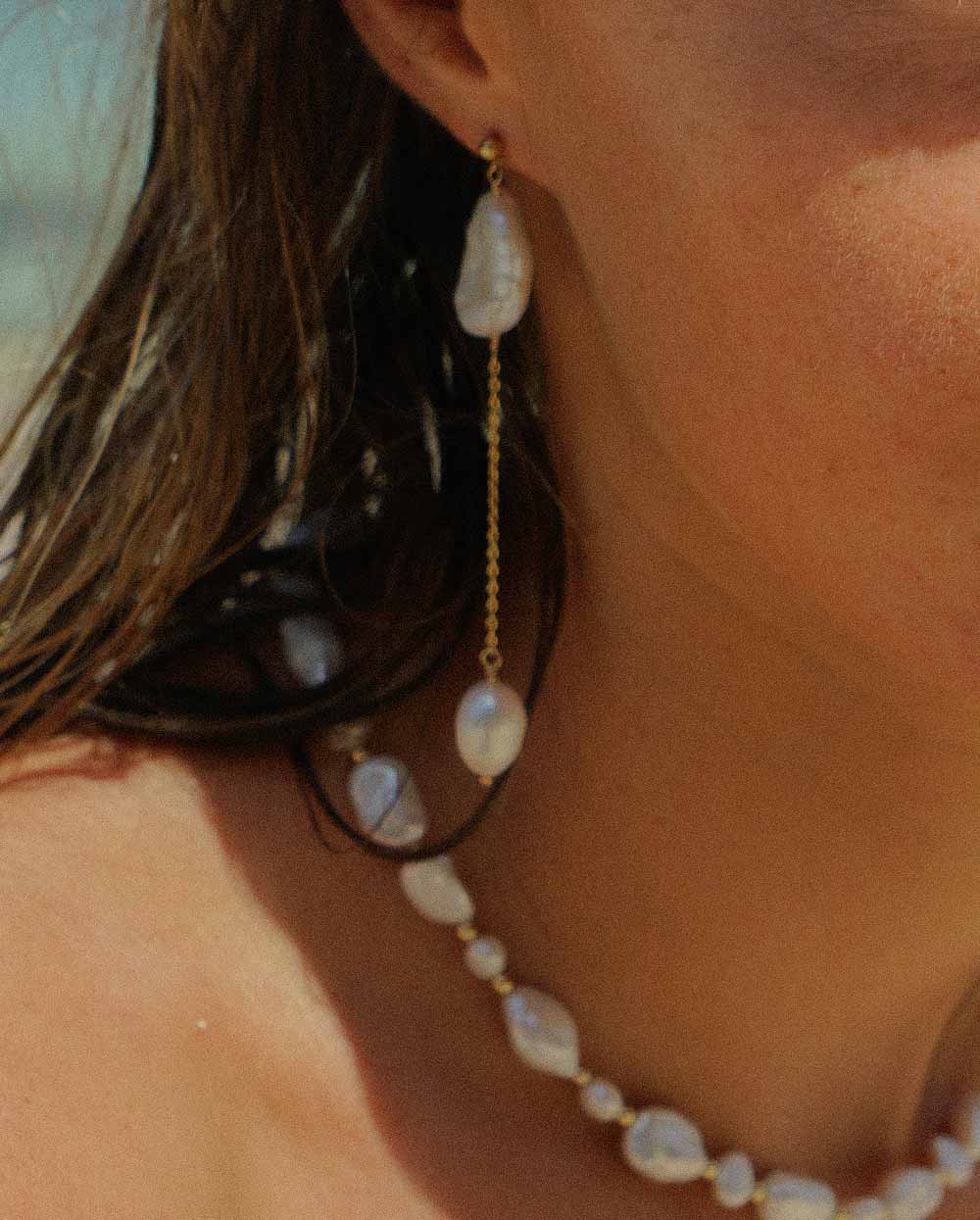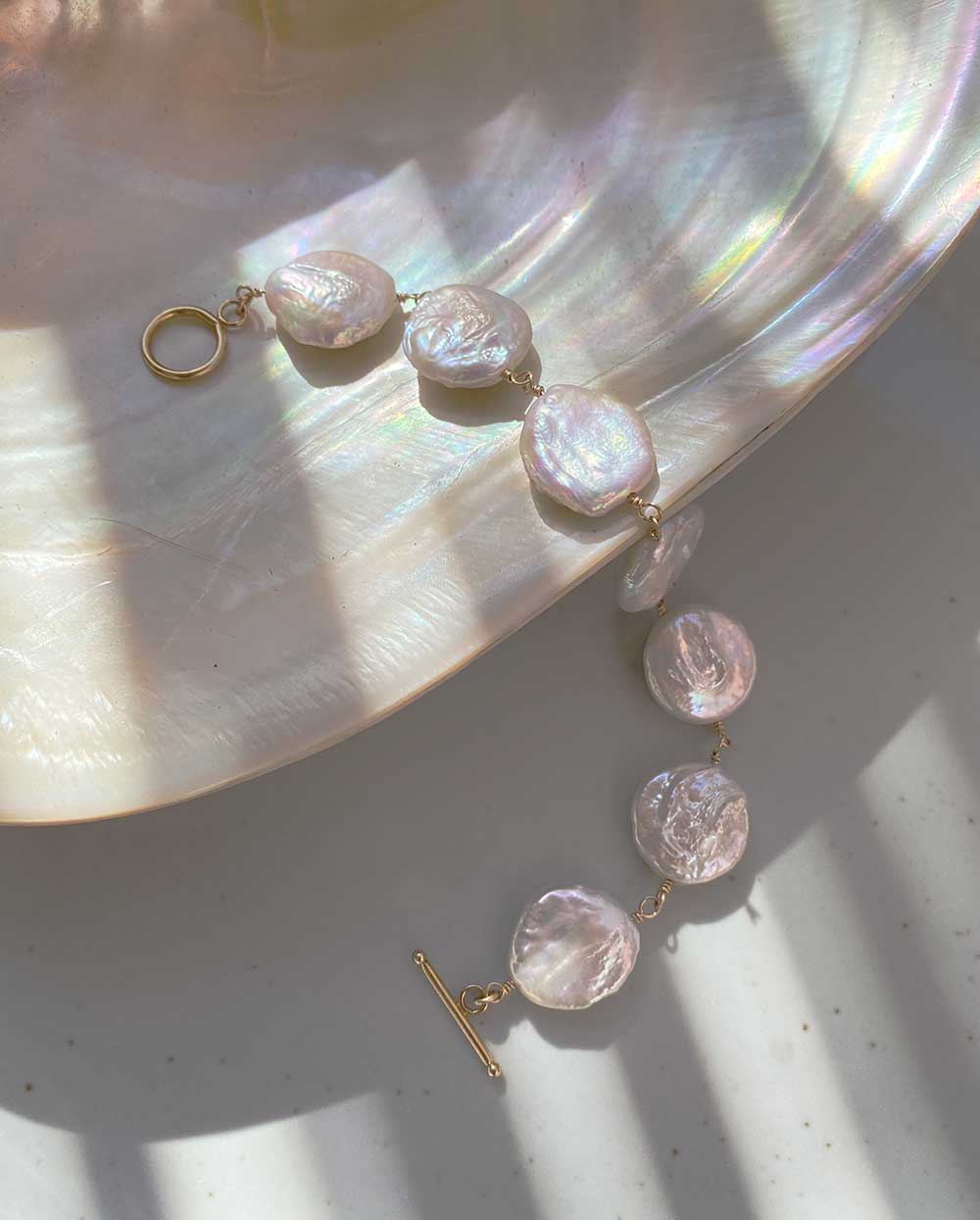Our Materials.
OUR MATERIALS
Sterling silver is an alloy of 92.5% of pure silver and 7.5% copper (alloy just means a mix of different metals). Pure silver is very soft and not suitable for jewellery making by itself, so the jewellery industry mixes pure silver with copper to produce 'Sterling silver'. Sterling silver oxidises naturally in the air and will tarnish over time if left unattended.
To keep your sterling silver jewellery always shiny, keep it in a ziplock bag away from moisture or you may actually wear it in the shower as the water will continually buff away the black oxidisation. Do not wear your silver in Chlorinated pools as this can tun your sterling silver black quite quickly! It is a good idea to remove your jewellery when engaging in activities such as swimming in chlorine pools and/or spas, washing dishes and doing work that requires the use of harsh chemicals and detergents.
If you notice your silver jewellery becoming dull or tarnished, you can simply polish the silver with a silver polishing cloth or liquid which can be purchase online. Our sterling silver jewellery is nickel free and hypoallergenic and is suitable for those with sensitive skin.
Shop Sterling Silver
Gold-filled is real gold pressure bonded to a base metal (usually copper or brass). The real gold is 100 times thicker than gold vermeil and hence is more expensive. Gold-filled is extremely affordable when compared to solid gold jewellery and it is the next best alternative to solid gold jewellery without the higher price point. Gold-filled jewellery is more expensive than gold-vermeil in general because of the much higher gold content. Our gold-filled jewellery is nickel free and hypoallergenic and is suitable for those with sensitive skin.
Shop 14K Gold-Filled
Gold vermeil is a heavy layer of real gold, plated over a sterling silver base - by law it must be at least 2.5 microns thick for durability. Because the base metal of gold vermeil is sterling silver it means the jewellery is much more durable, long lasting and also hypoallergenic. If the plating wears off over time you can always get it re-plated by a jeweller that has a re-plating service. Our gold vermeil jewellery is nickel free and hypoallergenic and is suitable for those with sensitive skin.
Solid gold jewellery is exactly that, it's jewellery made with gold from surface to core and can come in 9, 14, 18, 22 or 24 karats. The carats are a measure of the golds purity. 9 karat means 9 parts pure gold / 15 parts alloy (alloy just means a mix of different metals). 14 karat is 14 parts pure gold / 10 parts alloy. Therefore, 24 karats is 100% pure gold. Pure gold is very very soft and not suitable in jewellery making, therefore the industry mixed alloys into the gold to make it stronger for the purposes of wearable jewellery.
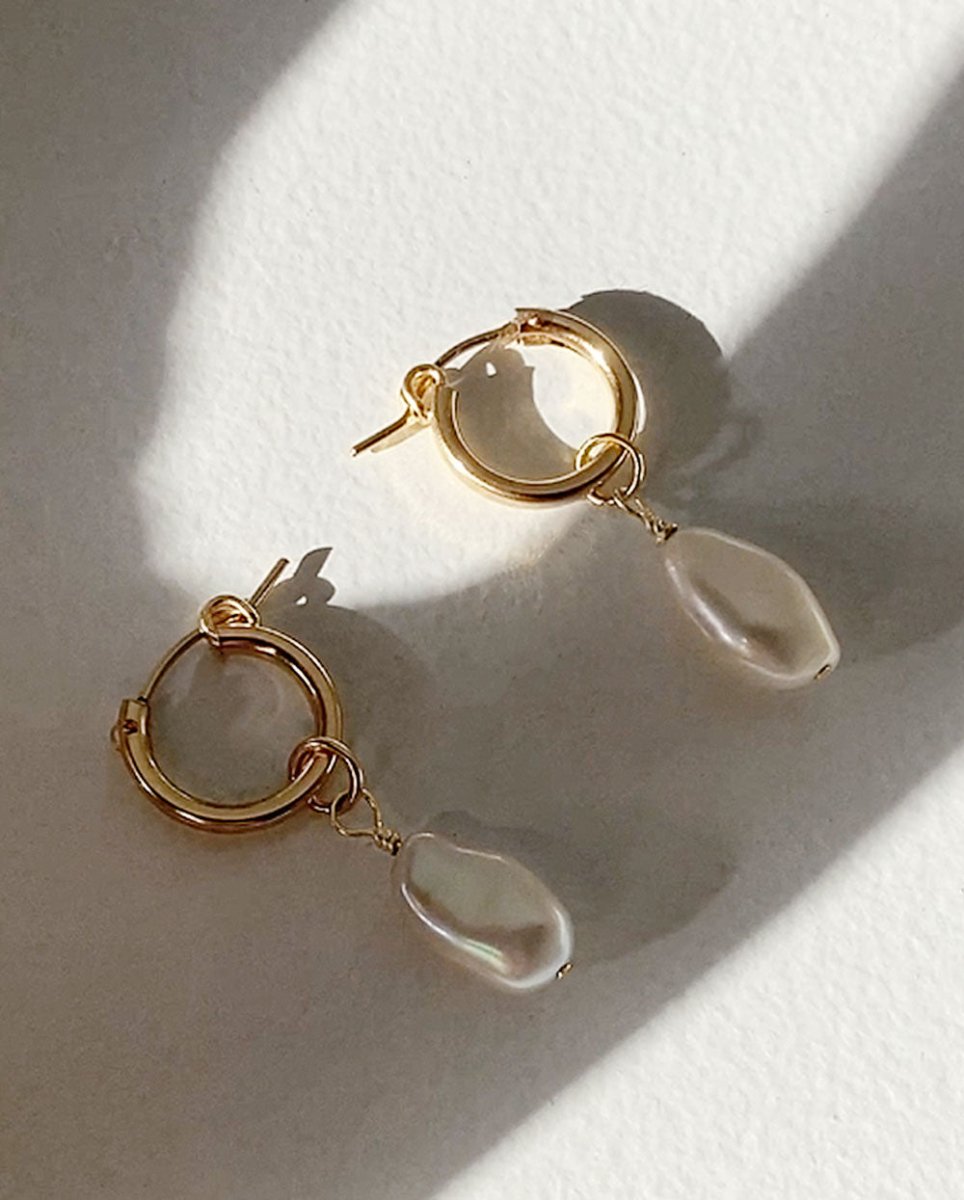
What is Tarnish?
Tarnish is a very natural process, it's all chemistry. Tarnish is a very thin layer of oxidisation that forms over gold or sterling silver when outermost layer undergoes a chemical reaction when it reacts with the oxygen and sulphur in the air. It often appears as a dull, gray or black film or coating. The rate at which your jewellery will tarnish depends on the humidity of the air, the acidity of your skin, exposure to water and how you store your jewellery.
Pure gold is a very stable element, non-toxic and is even editable. Pure gold will never tarnish but it is too soft to be used in jewellery design.
How can I prolong the life of my jewellery?
When you are not wearing your jewellery keep each piece stored separately in air tight zip lock bag or the original box packaging in a dry place. Ensuring minimal exposure to the air and moisture will slow down the natural tarnishing of your metals. This is especially important in humid countries and will also prevent knocks and scratches against other jewellery and objects.
It is recommended to clean your jewellery carefully and regularly with a soft lint free (micro fiber) cleaning cloth after each wear to remove sweat, oils and other chemicals. If using a professional jewellery-cleaning product, always read the manufacturers instructions.
The best way to keep jewellery from getting tarnished is not to let it be in contact with water. When you are washing your hands, showering or swimming (Chlorine in pools may cause the metals in jewellery to crack) make sure you take off your rings, bracelets, bangles and earrings. If it starts raining, run for cover. It your jewellery does get wet, dry with a lint free (micro fiber) cleaning cloth.
Sweating when wearing your jewellery is sure way to allow it to tarnish easily. Jewellery will very quickly tarnish readily on the skin if enough salt is present, aided by warmth and free access of air. Don't wear your jewellery to the gym or when exercising. If you are wearing your jewellery outdoors in the heat such as the beach use an absorbent powder, free of zinc oxide, on the skin areas which come into contact with your jewellery.
Put on your perfume, moisturiser, deodorant, sunscreen, makeup and hairspray, insect repellant before you put on your jewellery, but allow them to absorb into your skin first so that there is minimal contact with these creams and chemicals.
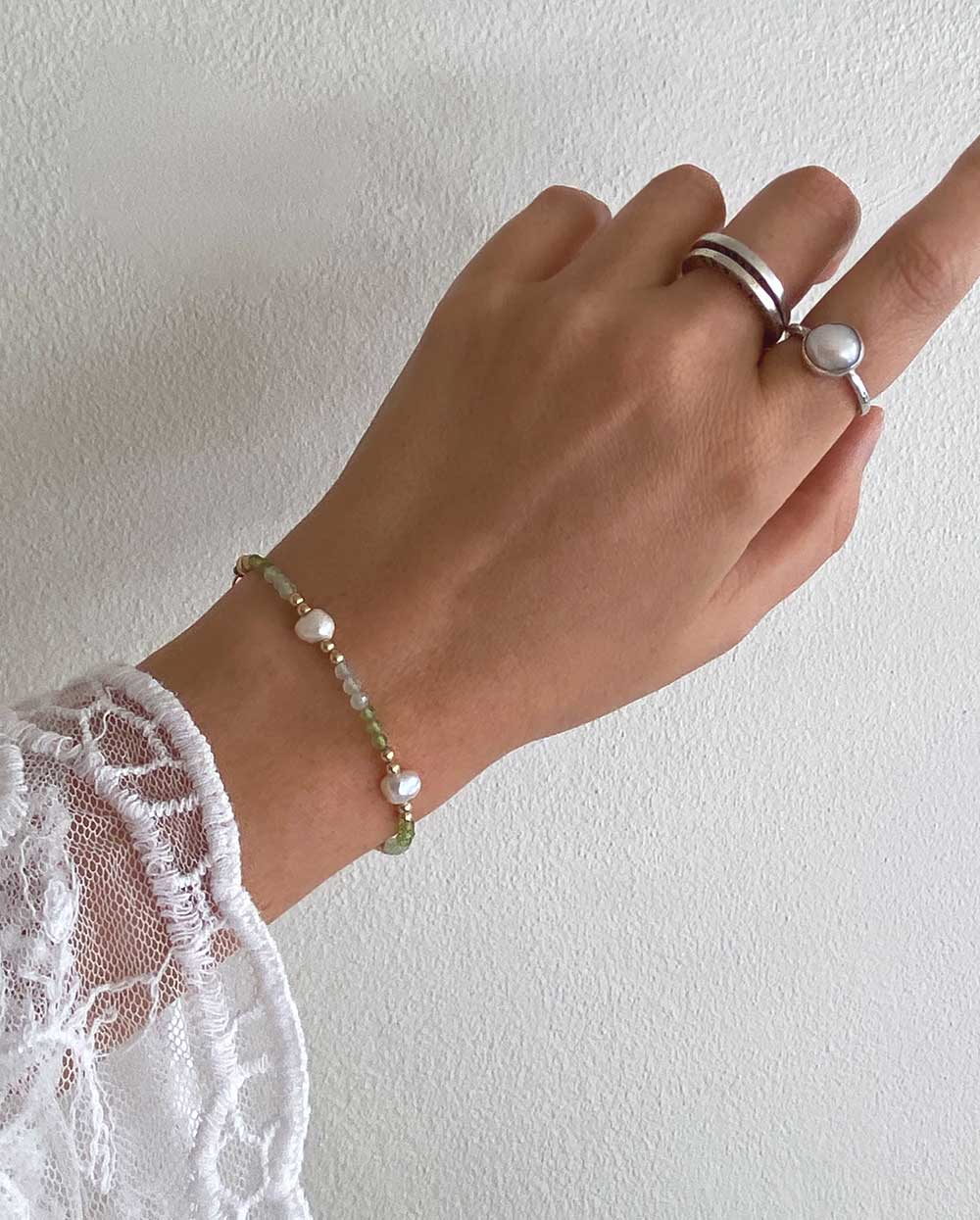
Does plated jewellery fade?
All plated jewellery will wear off over time as layers of the plating are worn away to reveal the base metal. The speed at which it wears off depends on how you care for your jewellery, the acidity of your skin and how thick the plating is. Please read our jewellery care tips below to prolong the life of your jewellery.
It is normal that gold and silver plated jewellery will tarnish and fade to reveal the original color of the base metal underneath. The speed in which plating wears off depends on how thick the plating is and how fast it tarnishes. The higher quality the plating the better protected is your jewellery. At Angela Wozniak Jewellery we only stock plated jewellery which is 2.5+ microns thick and for gold only 14k+ karats.

